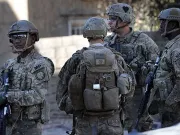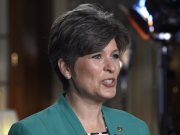Illinois Gov. J.B. Pritzker’s bid to extend a statewide stay-at-home order continued to face some pushback on Wednesday, as another Republican state lawmaker challenged the order in a lawsuit accusing the governor of fostering a “police state.”
It’s now the second lawsuit challenging the extension. The lawsuits, along with calls for more rallies later this week to protest the governor’s order, reflect a growing frustration over the state shutdown as more states move to reopen their economies and relax some pandemic restrictions.
On the other hand, some state officials say Illinois remains in a precarious situation where the virus is concerned, with the number of known COVID-19 cases now over 50,000.
The state on Wednesday began its efforts to challenge a court ruling that exempted downstate Rep. Darren Bailey, a Xenia Republican, from Pritzker’s stay-at-home order. The Chicago Tribune said it had asked the Illinois Supreme Court to take up its appeal directly.
The Clay County court’s ruling only allows Bailey to ignore the directive. Rep. John Cabello, a Machesney Park Republican and a Rockford police officer, said he seeks a wider-reaching outcome from the suit he filed Wednesday. The Tribune said it was filed in Winnebago County.
“Once we heard the arguments and that it really only seems to be applying to Bailey, I didn’t want that, I wanted it to apply to the rest of the state,” said Cabello, who was identified by the paper as co-chair of President Donald Trump’s 2016 presidential campaign in Illinois. “So we’re trying to find a way of doing it so that it applies to anyone that wants to do it, not to just one person. And make no mistake — this does not force anyone to leave their homes. This would give them the option.”
Illinois has been under a statewide stay-at-home order since March 21. The order was originally set to expire April 7.
Last week the governor said residents would be under an order to stay home that extended out until May 30.
There were to be some tweaks, reports say, including a gradual reopening of state parkland.
While hotspots like New York and California are clinging to more rigorous restrictions, other states are pressing to open up and salvage a sputtering economy. Georgia, for instance, has allowed some businesses to reopen.
Another southern state, Florida, is moving in the same direction. Under a Phase One plan for relaxing mandatory business closures announced Wednesday, Gov. Ron DeSantis said retail merchants and restaurants could welcome customers back inside their establishments starting Monday, but admissions will be limited to 25% of capacity.
Eateries may also reopen outdoor seating with appropriate social distancing, and medical practices can resume elective surgeries and procedures, DeSantis, the Republican governor of a key electoral swing state, said at a news conference.
But movie theaters, bars and fitness clubs will remain shuttered for the time being, he said. The governor’s plan also leaves existing restrictions in place for all commercial establishments in the densely populated South Florida metropolitan region consisting of Miami-Dade, Broward and Palm Beach counties.
At the federal level, President Donald Trump has been encouraging states to move in the direction of reopening. Trump said Wednesday the federal government’s coronavirus social distancing guidelines will be “fading out” when they expire Thursday, with a reliance on states taking charge as they pivot to reopening.
The administration says its cautionary guidance issued 45 days ago has been incorporated into recommendations given to the states on how they can begin gradually easing restrictions and reopening their economies.
Change is eagerly sought in Illinois, The Tribune reported. Small recent protests in the capital, Springfield, have urged an economic reboot, it said, and downstate leaders have pushed for area openings. More protests are planned for Friday, reports said.
Reuters contributed to this report.
via newsmax











